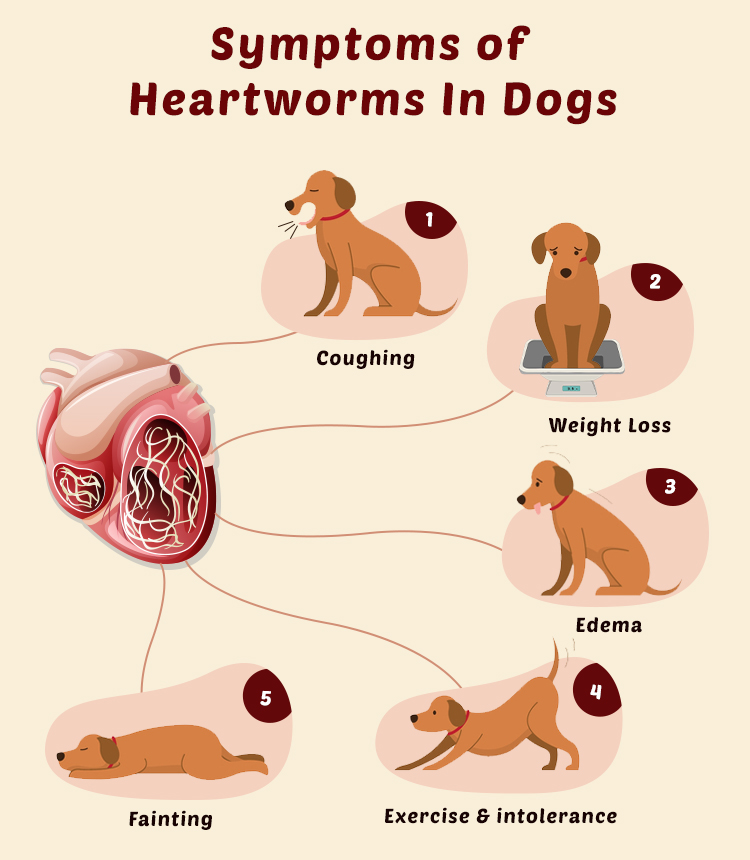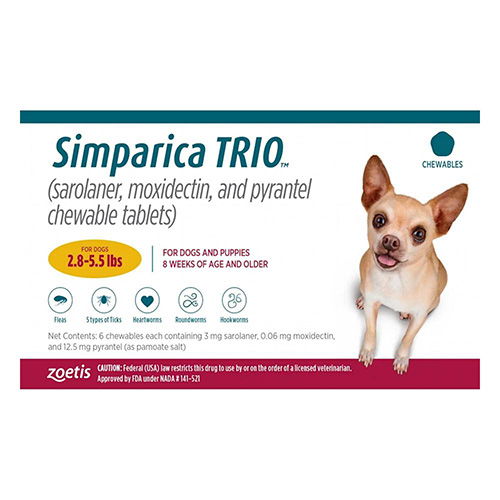May 30, 2024

As pet parents, we want nothing but the best for our furry companions. However, when it comes to heartworms in dogs, ignorance is not bliss. Understanding the facts about this potentially deadly parasite is crucial for ensuring the health and well-being of our canine friends. In this comprehensive guide, we'll cover everything you need to know about heartworms in dogs, from prevention to treatment and beyond.
Heartworms are parasitic worms that inhabit the heart, lungs, and blood vessels of infected dogs. They are transmitted through the bite of an infected mosquito, which injects heartworm larvae into the dog's bloodstream. Once inside the dog's body, these larvae mature into adult worms, causing serious health problems.
Signs of heartworm infection in dogs can vary depending on the severity of the infestation. Common symptoms include coughing, fainting, difficulty breathing, edema, fatigue, and weight loss. In advanced cases, dogs may exhibit signs of heart failure, such as fainting or swollen abdomen. If you notice any of these symptoms in your dog, consult your veterinarian immediately.

Dogs become infected with heartworms when they are bitten by mosquitoes carrying heartworm larvae. These larvae then migrate through the dog's body, eventually reaching the heart and lungs, where they mature into adult worms. It's essential to protect your dog from mosquito bites, especially during peak mosquito season, to reduce the risk of heartworm infection.
Treatment for heartworm disease can be complex and costly, often requiring multiple rounds of medication and close monitoring by a veterinarian. In severe cases, surgical removal of adult worms may be necessary. Early detection and treatment are key to improving the prognosis for dogs with heartworm disease.
Preventing heartworm infection is far easier and less expensive than treating the disease.


3. Advantage Multi (Advocate) for Dogs

Including monthly oral medications, topical treatments, and injectable formulations. Consult your veterinarian to determine the best prevention protocol for your dog based on their lifestyle and risk factors.
Untreated heartworm disease can significantly shorten a dog's lifespan, with some dogs succumbing to the infection within a year of diagnosis. However, with prompt and proper treatment, many dogs can recover and live normal, healthy lives. Regular heartworm testing and prevention are essential for ensuring your dog's long-term health and well-being.
Heartworm disease cannot be directly transmitted from dog to dog. Instead, it is spread through the bite of an infected mosquito. However, if a mosquito bites an infected dog and then bites another dog, it can transmit heartworm larvae to the second dog, leading to infection. Preventing mosquito bites is key to reducing the spread of heartworm disease among dogs.
Heartworm disease poses a serious threat to the health and longevity of our beloved canine companions. By understanding the risks, recognizing the signs, and taking proactive measures to prevent infection, we can protect our dogs from this potentially deadly parasite. Remember to consult your veterinarian for personalized advice on heartworm prevention and treatment for your dog. With proper care and vigilance, we can ensure our dogs lead happy, healthy lives free from the dangers of heartworms.
Explore More Dog Products At Lowest Price